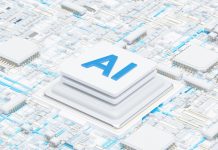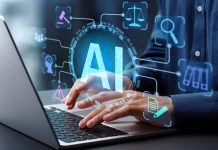Here, Seija Kulkki, of Aalto University School of Business discusses participative RDI for inclusive transformations and Europe’s living labs
Since the 1990s we have witnessed a global spread of ICT, clouds and digital technologies. In the history of technological advancement of humankind, these are revolutionary technologies that have transformed – not only functionalities and efficiency of machines and devices – but also structures and processes of local and global industrial production and delivery. Moreover, these technologies have transformed the everyday life of human beings, as we have learnt from the internet, social media, intelligent traffic and digitalised welfare services that benefit from devices such as mobile phones, cars, computers, and refrigerators, in everyday use of humans. This informs us about new methods of modern human life in a digital era. The ICT, clouds and digital technologies have changed communication, information, and knowledge relations between all the economic, institutional and social actors, including individual humans. We argue that these technologies are relational and consequently structural by nature. They form a new relational infrastructure penetrating economic, social and human life.
They also carry a strong potential of changing our perception of economic, social, and human structures, processes and relations. The World Economic Forum (2016)1 argues for the next industrial revolution that it builds on and benefits from digital platforms, and deals specifically with the information and knowledge of humans. This technological development may integrate physical, digital and biological spheres of life as it builds upon, develops and integrates digital technologies with findings of social and human sciences, as well as with neuroscience, bioinformatics, medicine, science of wellbeing, health analytics and other branches of sciences wherein the human information connection may be created with globally interactive and complex digital platform technologies.
As we see, not only the economic and industrial structures, processes and relations are digitalised; the very same takes place deeply in relation to structures, processes, and relations of social and human life. Both are undergoing a strong ‘technologisation’. The World Economic Forum foresees that this transformation will be unlike anything humankind has experienced before. Consequently, we argue that the issue is not only about economic or industrial efficiency and renewal; the issue is about the nature of the future of human life.
We argue, however, that Europe has an opportunity to make a major contribution to a more human-centric social and economic development – even globally; Europe has a science, research and innovation policy for solving societal challenges through RDI (research, development and innovation, Horizon 2020, 3rd Pillar) in addition to science and technology (1st Pillar) and corporate RDI (2nd Pillar). By definition, Europe may be better positioned to address in a balanced way, the major societal challenges of our time, many of them caused by overemphasising the role of finance and technology driven globalisation.
Living Labs
Europe has already gained encouraging experiences of human and user centric RDI related to ICT and digitalisation. As early as 2006, during the Finnish EU Presidency and as a part of the official EU Presidency Programme, the European Network of Living Labs was launched on November 20th2. By then, the European Network of Living Labs (ENoLL) included 20 actors from 16 European countries.
The strategic goal of the network was to provide open innovation ecosystems in cities and regions where firms, academia, public agencies, developer communities and citizens could collaborate in RDI for new ICT and digital services and business models.
The collaboration included experimentation, piloting, validating and scaling up technologies, services and business models within thematic domains such as media, wellbeing services, energy efficiency, intelligent traffic, rural development and climate action. The network has even experimented for inclusive collaboration where forms of participative RDI with people, developer communities, social networks, academia, cities, and public agencies take an initiative and even a drivers’ seat for collaboration with firms for solving societal challenges. This has even taken the human life and nature as a ‘centre for orientation’, leading also towards more equalitarian value and wealth creation. Locally, the network has had a positive impact on participative democracy development.
Today, the network includes over 400 open innovation ecosystems3 in cities and regions; they are internationally networked and apply means of public and citizen engagement. This is a promising start, with the knowledge and experience of human-centric participative RDI between firms, academia, cities, regions, public agencies and people. Besides this network, there are a rich set of experiences of collaborative RDI with citizens among others through smart cities, future cities and innovative regions’ networks.
However, we argue for a ’second coming’ of human-centric and open innovation ecosystems such as the European Network of Living Labs (ENoLL). The ’second coming’ should concentrate more on inclusive structural transformations around health care and wellbeing services as a system, and around ageing populations, social media, intelligent traffic and transportation, use of renewable energy and energy efficiency, climate action, participative democracy and even public and participative governance.
However, this may imply that Europe may need to consider strengthening the institutional foundations for participative RDI and inclusive transformations; there may be a need for a new European-wide development fund and organisation which promotes and scales up human-centric and inclusive RDI concerning societal challenges in cities and regions.
This also implies that cities and regions open their own RDI functions, and invest in related infrastructural, organisational and funding solutions. They also need to develop related skills and capabilities. Universities may reinterpret their perception and portfolio of sciences to include participative, open and citizen sciences and related innovations. This is a major change in an ongoing ’trajectory’ within universities; we have seen social sciences and humanities to loose in the competition with natural sciences and technology.
However, this also means that we interpret the content of social sciences and humanities to include open and citizen science and innovations, and even large-scale experimentation for piloting and validating with citizens and other stakeholders for new solutions of societal challenges. Universities themselves may need to participate in social and economic development and learn to apply and develop participative methodologies, means of action research and methodologies of societal challenge driven research designs and processes. Universities – perhaps with cities and regions – may even need to invest in new interactive, digital platform-based RDI infrastructures for interaction with citizens on a large scale for data collection, pattern building and even for discussion of RDI outcomes.
We may need major transfer of resources and capabilities towards human-centric, as well as city and citizen driven collaborative RDI around societal challenges. This participative and all-inclusive RDI process may imply over time a new potential as major transformative process within societies – perhaps even for public policy making. This may demonstrate how to substantiate the role and nature of human-centric participative democracy.
1 Schwab, Klaus (2016): The Fourth Industrial Revolution; what is means, how to respond: The World Economic Forum Annual Meeting, Thursday 14, January 2016
2 Press release by Finland’s EU Presidency: Helsinki Manifest: Launch of the European Network of LivingLabs in November 2006
3 EU: Conference on Open Innovation 2.0 in Amsterdam, May 23-24, 2016 where the number of the European Networked Living Labs as regional or city -based open innovation ecosystems was announced
Seija Kulkki
Aalto University School of Business
seija.kulkki@aalto.fi
Please note: this is a commercial profile











